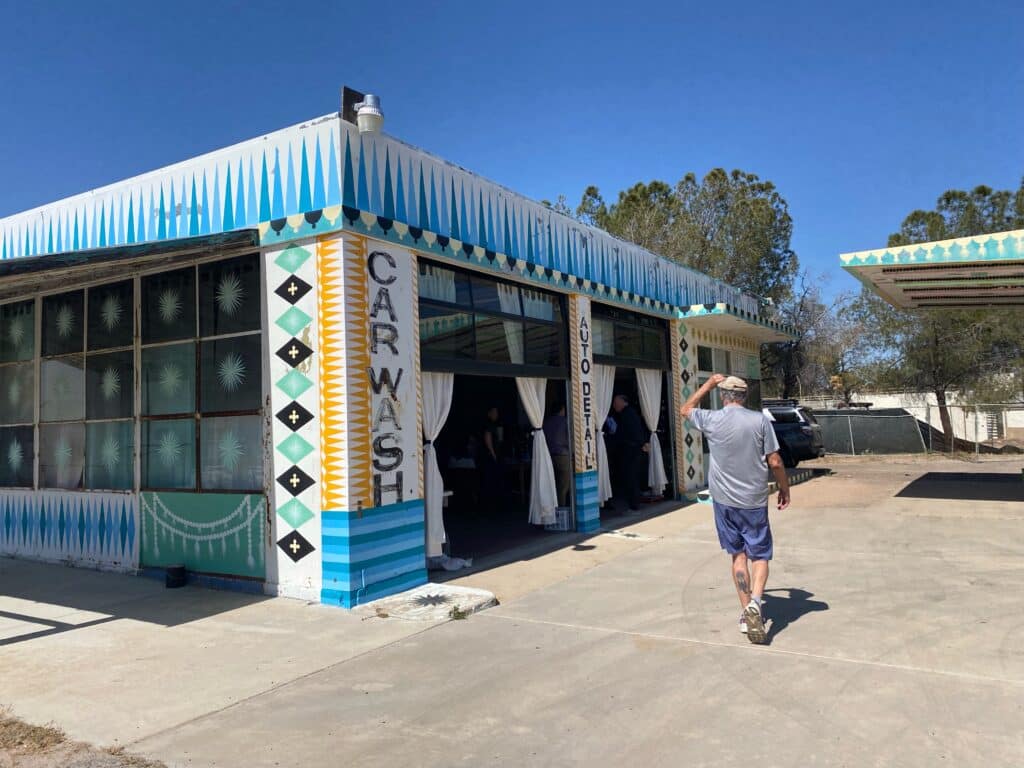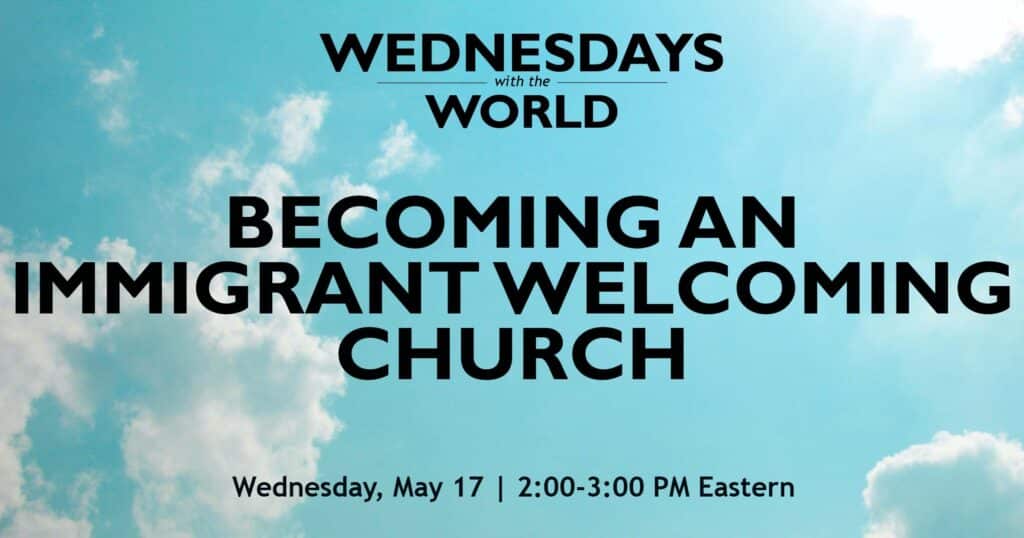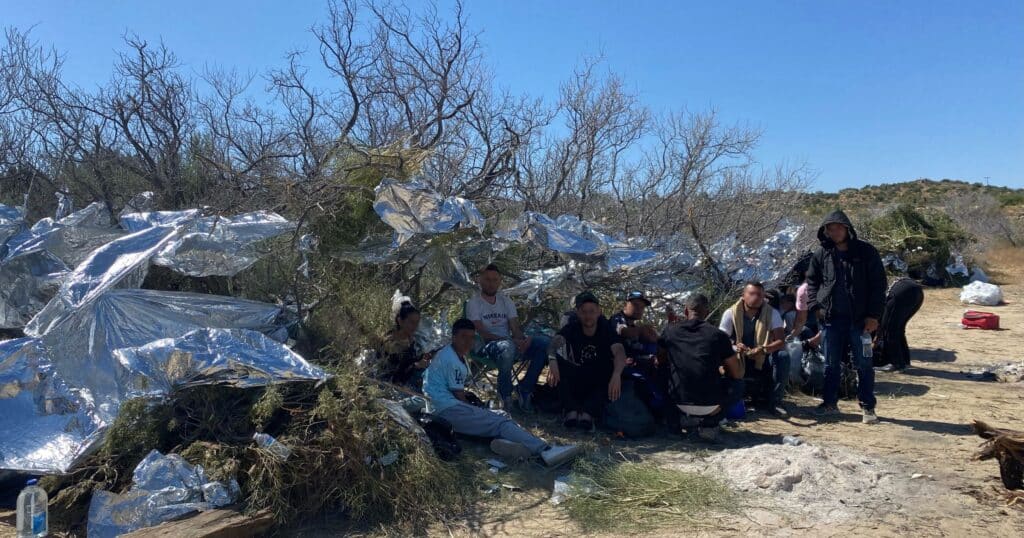As Title 42 ends, UCC advocates prepare to help migrants at border amid widespread uncertainty
The federal public health order, Title 42 — which limited migration at the United States’ southern border, purportedly as an emergency response to the COVID-19 pandemic — expired May 11 just before midnight. And as it did, migrants, asylum seekers and immigration rights advocates remained uncertain about what the future would hold.
For many in the United Church of Christ, both nationally and locally, the end of Title 42 signals new possibilities for better policies. But those haven’t manifested yet.
“While it’s a relief that the inhumane border policy of Title 42 is finally coming to an end, we remain concerned that the criminalization of vulnerable migrants seeking safety appears to be the priority for U.S. immigration policy,” said the Rev. Irene Willis Hassan, who leads the UCC’s national refugee and migration ministries. “Instead of increasing capacity to process asylum applications or expand pathways to immigration, the federal administration continues to invest in militarization and marginalization strategies that do nothing to alleviate strain and suffering.
“We urge churches to continue speaking out against inhumane treatment of migrants, as well as engage their congregational capacities to welcome the stranger as our faith urges of us.”
For congregations that want to help, Willis Hassan and others from the UCC National Collaborative on Immigration are hosting a webinar May 17 at 2 p.m. ET on “Becoming an Immigrant Welcoming Church.”
“One main goal of inviting folks into a centralized network is to have a robust support system for assisting asylum seekers, such as driving them to court hearings, funding bus tickets, offering temporary shelter as they pass through or other more permanent resettlement activities,” Willis Hassan said. “This level of support is better done as a national village than each church operating alone.”
Impact on border communities
Along the U.S.-Mexico border, local UCC churches and their communities witness first-hand what happens to those attempting to enter the country.
Caroline Theiss-Aird — who serves on the leadership team for the UCC National Collaborative on Immigration — is a member of Pilgrim UCC in Carlsbad, Calif., where she co-chairs the congregation’s social justice team and is its primary liaison for immigration issues.
“Pilgrim has been involved in immigration work for decades,” she said.
Carlsbad is located in what’s known as North County, the northern portion of San Diego County. An hour drive from Mexico, what happens at the border impacts North County, too, Theiss-Aird explained: “It’s part of our day-to-day lives. We all have friends and family members and we know the people who are affected. So it’s close to our hearts.”

Even in the few days following the end of Title 42, she’s already seen that the situation at the border remains dire for many migrants.
Hardly had the order expired when Theiss-Aird received word from local immigration rights partners that around 1,000 people were being detained in Jacumba Hot Springs — an unincorporated community on the southeastern edge of San Diego County, which Theiss-Aird described as a more desert-like area. She and her husband announced this to their church Sunday, May 14, and gathered emergency supplies to drive to Jacumba.
“We have money set aside for migrant needs, so we just went and bought a bunch of stuff,” Theiss-Aird said, such as water, hand sanitizer and other basic necessities.
When they arrived, they found even more people than they thought and in great need.
‘We’ve known this was coming’
Authorities had migrants set up in a few “camps,” Theiss-Aird said: “And when I say ‘camps,’ that’s a loose term.”
She saw people sheltering from the sun under shrubs and bushes webbed with plastic emergency blankets, with little to no food or water. Unfortunately, such sights are not new to Theiss-Aird, as she has witnessed people stuck in limbo at the border, left with almost nothing to eat, drink or care for themselves.
Since the expiration date of Title 42 has long been known, Theiss-Aird expressed frustrations that more hasn’t been done before now to improve the processing of migrants at the border.
“Why didn’t they prepare?” she said. “And why are they continuing to treat people as less than human? We’ve known this was coming for years. There’s no excuse for treating human beings this way, coming from desperate circumstances, trying to exercise their legal right to seek asylum.”
For other UCC advocates, Title 42 and the uncertainty left in its wake exemplify an ongoing lack of action from federal decisionmakers.
“For the past three years, the U.S. government has been hiding behind this health mandate in order to avoid addressing the need for immigration reform,” said the Rev. Randy Mayer, senior minister of The Good Shepherd UCC in Sahuarita, Ariz., a congregation that has long ministered to migrants at the border. “Everything is about to change, and the Biden administration, Congress and the U.S. Border Patrol are all expecting mass chaos.”
A volatile situation
Mayer — who will take part in the May 17 webinar — stated that he and many others believe conditions at the border could get worse without better, more humane and clearer policy.
“Communities along both sides of the Mexico-U.S. border are preparing for a dangerous surge of desperate migrants,” he said. “Ports of entry are expecting that migrants will begin to camp out in the ports with children and families sleeping in line for days, weeks or months.”
As he and The Good Shepherd have witnessed for years, this makes for a volatile situation.
“Everyone expects that as people get frustrated and tired waiting to cross into the United States through an impossible legal pathway, many will take matters into their own hands and attempt to cross the border on their own,” Mayer said. “Many will try to cross through the treacherous desert that much of the border runs through. There temperatures are starting to rise and soon will be over 110 degrees Fahrenheit (which is 43 degrees Celsius). Humanitarian groups are gearing up to put out more water on the trails and expand their presence in the desert.”

He added that the government’s response, instead of adjusting policy, appears to be policing those attempting to offer aid.
“In sum, tension and stress are escalating along the U.S.-Mexico border” as Title 42 ends, Mayer said. “Rather than offering compassion and care, the U.S. Government is preparing to ramp up the arrest of migrants and humanitarian workers. Can things get any crazier?”
Immigrant Welcoming
Amid all this, many congregations close to Mexico, such as Pilgrim and The Good Shepherd, are pitching in to help however they can. Many others — whether they are nearby or not — also may feel called to serve those in need at the border.
One way to do that is through the Immigrant Welcoming designation for local churches, one of the UCC’s Just World Covenants. The webinar on May 17 will include information about how to do that and how that process can help migrants and asylum seekers. Register for the webinar here.
Theiss-Aird also noted that anyone can donate to Pilgrim’s immigration ministries by designating gifts to the church for “immigrant needs,” either through the church’s website or mailing a check.
“I feel very fortunate to be here near the border to bear witness and to be able to provide even what feels like a drop in the bucket and let people know there are Americans who care and are willing to help them,” Theiss-Aird said.
Besides direct aid, she also pointed to the significance of faith communities as advocates and the importance of speaking up. “We need to hold the Biden administration accountable, the same way we did the Trump administration. We need to demand better,” she said, adding: “There’s no way this is over.”
Content on ucc.org is copyrighted by the National Setting of the United Church of Christ and may be only shared according to the guidelines outlined here.
Related News
A Moment of Silence
The weekend news was alarming. Two students shot and killed with 9 injured at Brown University...
Read MoreIn hope-filled worship service, UCC and United Church of Canada celebrate full communion past and future
On Saturday, Dec. 13, many from the United Church of Christ (UCC) and the United Church of...
Read More‘A Gift of God to the World:’ Christmas greetings from the General Minister and President
As Christmas quickly approaches, UCC General Minister and President/CEO the Rev. Karen Georgia...
Read More


